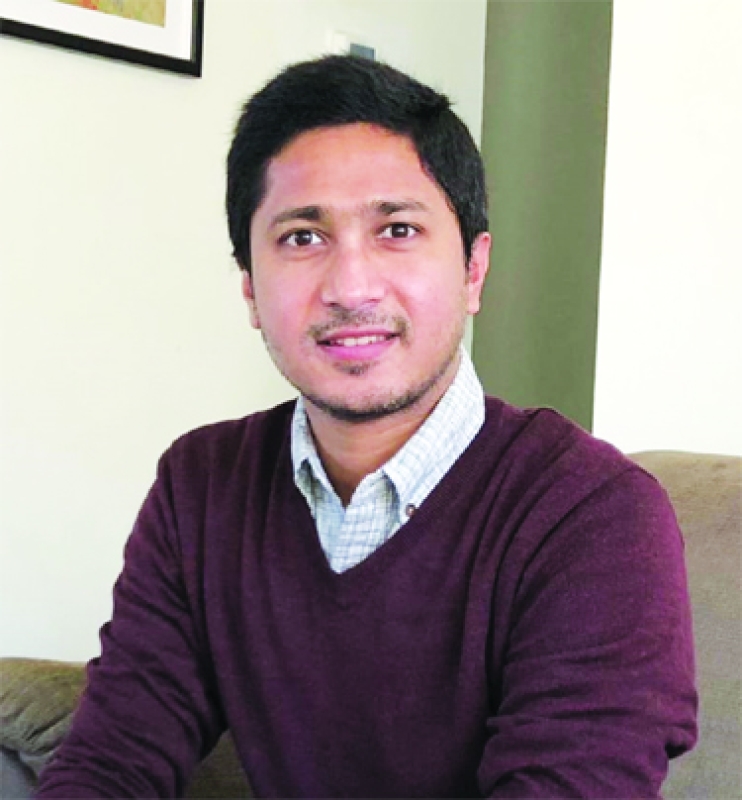- Bhutan’s Tala Dam Overtopped after unprecedented rainfall |
- Bangladesh’s Coastal Fishers Trapped by Debt, Climate Change |
- 3 US physicists win Nobel for quantum tunneling research |
- Bangladesh economy rebounds strongly in latter half of FY25: WB |
- Tarique urges teachers to back BNP for reform-focused govt |
Bangladeshi-Origin Expert Reveals How to Build Top Teams

Dr. Md Rashedul Islam
Dr. Md Rashedul Islam, a Bangladeshi-origin academic and Assistant Professor of Industrial and Organizational Psychology at Valdosta State University in Georgia, USA, recently shared valuable insights on organizational success and team dynamics with Bangladeshi journalists.
Dr. Islam, who conducts extensive research beyond his university work, explained that key concepts such as synergy, accountability, and skill distribution function differently in groups and teams.
He noted that while synergy in a group can sometimes be neutral or even negative, it is almost always positive in a team. Similarly, accountability in a group tends to be primarily individual, whereas in a team it includes both personal and mutual responsibility. Skills in a group are often scattered and random, but in a team, they are complementary, deliberately aligned to enhance overall performance.
Defining synergy, Dr. Islam described it as the collaboration among individuals or components where the combined result exceeds the sum of individual contributions. For instance, if three team members each produce an individual impact of X, the total would typically be 3X. However, when their combined effort exceeds 3X, it demonstrates true synergy.
The Advantages of Teams
Dr. Islam highlighted several reasons for the rising importance of teams in modern organizations. Teams can accomplish objectives that individual members cannot, adapt swiftly to changing circumstances, and be formed or restructured as needed. They also promote democratic practices, encourage employee participation, and foster a culture of collaboration.
Addressing concerns about the effect of uncooperative members, Dr. Islam emphasized that team performance is influenced by numerous factors beyond personality. These include coordination, cooperation, reasoning, collective effort, diversity, cognitive abilities, collective intelligence, personality traits such as conscientiousness, agreeableness, extraversion, and emotional stability, peer influence, workplace stress, social interaction, and the phenomenon of flow experience.
Flow Experience: Unlocking Peak Performance
Flow experience, he explained, is a state where individuals become deeply immersed in a task, losing awareness of time and feeling profound satisfaction. When multiple team members experience flow simultaneously, performance can improve significantly. Research suggests that flow alone can account for around 12 percent of overall team performance.
Diversity: More Than Just Nationality
Dr. Islam also stressed that workforce diversity extends far beyond nationality. Modern teams include age diversity, with employees ranging from 20 to 65, work-type diversity such as in-person, online, or hybrid roles, and personality diversity, encompassing traits such as agreeableness, conscientiousness, emotional stability, extraversion, and openness to experience. This complexity makes forming highly effective teams a challenging task.
To maximize team performance, Dr. Islam emphasized assembling the “best” possible team. Key factors include cognitive abilities, collective intelligence, mutual interdependence, conscientiousness, agreeableness, cooperation, and strong social interaction among members.
Conclusion: Building High-Performing Teams
Dr. Islam concluded that understanding team dynamics and carefully considering these factors can significantly improve team performance and organizational effectiveness. He encouraged leaders and managers to invest in building teams that combine complementary skills, foster flow experiences, and embrace diversity to achieve superior results.
By applying these insights, organizations can unlock the full potential of their teams, creating environments where collaboration, accountability, and synergy drive sustained success and measurable outcomes.

